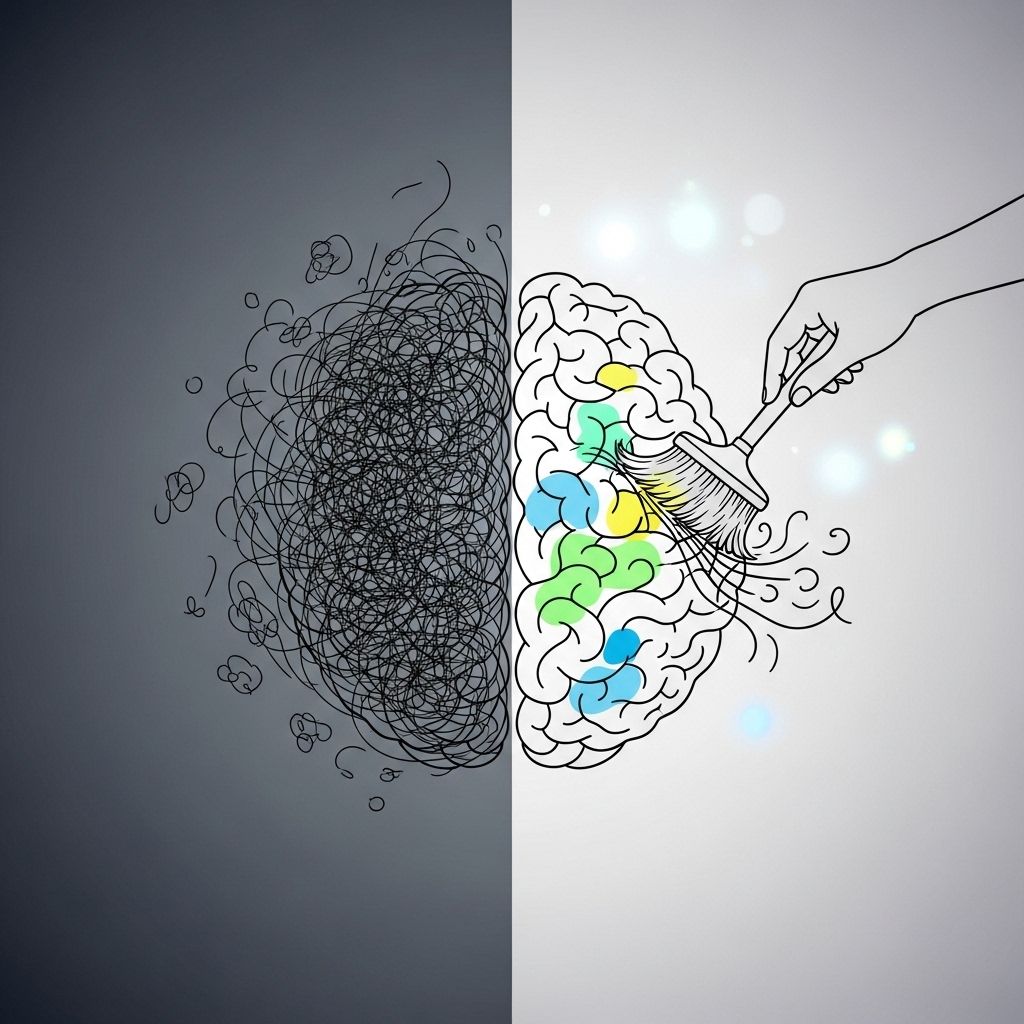Cognitive Decluttering After Career Failure
Clearing mental clutter creates space for renewed confidence and clearer goals.

Career failure can be a daunting experience, often leading to feelings of anxiety, stress, and confusion. However, it can also serve as a catalyst for growth and transformation. One effective strategy to navigate this challenging period is cognitive decluttering—a holistic approach that involves clearing mental, emotional, and physical clutter to regain clarity and focus. This process not only helps in managing stress but also enhances productivity and decision-making skills. In this article, we will delve into the concept of cognitive decluttering, its benefits, and how it can be applied to overcome career setbacks.
What is Cognitive Decluttering?
Cognitive decluttering is the practice of eliminating unnecessary mental and emotional baggage that hinders our ability to think clearly and make rational decisions. It involves addressing both the internal clutter, such as negative thoughts and emotions, and the external clutter, like a cluttered workspace or home environment. By decluttering these areas, individuals can improve their concentration, reduce stress, and foster a more productive and organized lifestyle.
Benefits of Cognitive Decluttering After Career Failure
Experiencing career failure can lead to a whirlwind of negative emotions and thoughts. Cognitive decluttering offers several benefits that can help individuals navigate this challenging time:
- Reduced Stress and Anxiety: Cluttered environments, whether physical or mental, can exacerbate feelings of stress and anxiety. Decluttering helps create a more serene environment, both internally and externally, reducing cortisol levels and promoting a sense of calm.
- Enhanced Focus and Productivity: A clutter-free space allows for better concentration and organizational ability. By removing distractions, individuals can focus more effectively on their goals and tasks.
- Improved Decision-Making: Cognitive decluttering enables clearer thinking, which is crucial for making sound decisions during career transitions.
- Boosts Mood and Mental Clarity: Decluttering can improve mood by reducing fatigue and promoting mental clarity, which is essential for plotting a new career path.
How to Practice Cognitive Decluttering
Implementing cognitive decluttering involves a multi-step approach that addresses both mental and physical aspects:
Step 1: Declutter Your Mind
Begin by identifying and addressing negative thoughts and emotional clutter. This can be achieved through mindfulness practices, journaling, or seeking professional help. By clearing mental clutter, you create space for positive thoughts and a clearer mind.
Step 2: Declutter Your Time
Time management is crucial in cognitive decluttering. Prioritize tasks and activities that align with your goals, ensuring you allocate time wisely. This helps in eliminating non-essential commitments and reducing mental fatigue.
Step 3: Declutter Your Space
Eliminate physical clutter from your living and work environments. A tidy space reduces distractions and promotes a sense of control and calm, facilitating better focus and productivity.
Overcoming Career Failure Through Cognitive Decluttering
Career setbacks can be overwhelming, but cognitive decluttering offers a constructive way to navigate this period. By clearing mental, emotional, and physical clutter, individuals can regain control over their lives and careers. Here are some strategies to apply cognitive decluttering in overcoming career failure:
–
Re-evaluate Career Goals
: Use this as an opportunity to reassess your career aspirations and align them with your true passions and values.-Create a Support Network
: Surround yourself with positive influences and mentors who can guide you during this transition.-Focus on Personal Growth
: Invest time in learning new skills and personal development to enhance your career prospects.Frequently Asked Questions (FAQs)
Q: What is cognitive decluttering, and how does it help after career failure?
A: Cognitive decluttering is the process of clearing mental, emotional, and physical clutter to improve focus, reduce stress, and enhance productivity. It helps individuals overcome career setbacks by promoting clarity and decision-making skills.
Q: How can I start cognitive decluttering to address career failure?
A: Begin by addressing mental clutter through mindfulness or journaling, then organize your time and physical space. This holistic approach will help you regain control and focus during career transitions.
Q: Is cognitive decluttering beneficial for mental health?
A: Yes, cognitive decluttering is beneficial for mental health. It reduces stress and anxiety, boosts mood, and enhances focus, leading to improved overall well-being.
Conclusion
Cognitive decluttering offers a powerful tool for overcoming career failure by enhancing mental clarity, reducing stress, and fostering productivity. By applying these strategies, individuals can not only navigate difficult career transitions but also emerge stronger and more focused than before.
References
- https://blog.dowellht.com/post/benefits-of-holistic-decluttering
- https://sparklemafia.com/the-psychological-benefits-of-decluttering/
- https://parkercolescurtis.com.au/blog/creating-space-for-the-new-the-power-of-decluttering
- https://www.pockitudes.com/blog/the-mental-magic-of-decluttering
- https://milehighpsychiatry.com/spring-cleaning-for-your-mind-mental-health-benefits-of-decluttering/
- https://www.psychologytoday.com/us/blog/the-resilient-brain/202302/the-many-mental-benefits-of-decluttering
- https://fellowshiplifeinc.org/blog/decluttering-and-mental-health-what-you-need-to-know/
Read full bio of Sneha Tete












